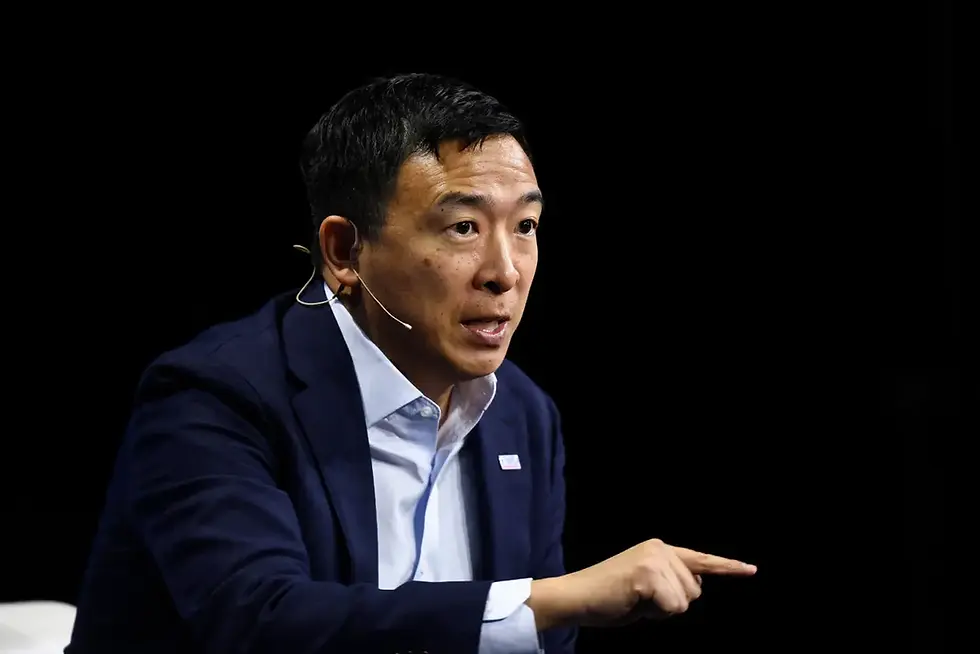Napoleon Bonaparte: A Study in Ambition, Power, and Modern Leadership Lessons
- Miao Zhang

- Nov 5, 2024
- 4 min read

Napoleon Bonaparte remains a figure of fascination and debate, embodying both the virtues and vices of leadership. From revolutionary hero to self-proclaimed emperor, his life and actions have left a profound mark on history. In examining Napoleon’s legacy, modern leaders can draw lessons applicable to contemporary challenges in leadership, governance, and strategy. This article synthesizes key perspectives to offer a well-rounded analysis of Napoleon’s multifaceted character and influence, and how these lessons apply today.
Early Ambition and Youthful Leadership
Napoleon Bonaparte’s rise to power was meteoric, ascending to the rank of Emperor before the age of 30. This early success demonstrates that effective leaders can emerge younger than often assumed. The notion that leadership must be reserved for those with extensive experience may overlook the transformative potential of young talent.
Youth as a Source of Potential
Napoleon’s military successes at a young age, commanding vast armies and orchestrating complex campaigns, underscore that youth can be a time of extraordinary potential if harnessed correctly. The Apostle Paul’s words, “Don’t let anyone look down upon you because of your youth,” resonate strongly with this idea.
Key Insight: Modern organizations should cultivate an environment that allows younger leaders to rise, innovate, and contribute, enriching the leadership landscape with fresh perspectives and energy.
The Double-Edged Sword of Power
One of the most discussed aspects of Napoleon’s character is his relationship with power. His famous assertion, “I have tasted command, and I cannot give it up,” is a reminder of the addictive nature of power.
The Risks of Unchecked Authority
While power can be used to mobilize and inspire, it also risks corrupting the leader if not checked by accountability. Napoleon’s ambition, while fueling great achievements, also set him on a path that led to his downfall. His insatiable desire for control made him dismiss democratic ideals and pursue conquests at great cost.
Quote for Reflection: “Power corrupts, and absolute power corrupts absolutely” – Lord Acton.
Lessons for Modern Leaders
This lesson holds significance in today’s context, where leaders in business and politics may succumb to the allure of unchecked power. Ensuring transparency and accountability is essential to prevent the overreach that defined Napoleon’s later years.
The Dangers of Unchecked Ambition
Napoleon’s relentless pursuit of “glory and victories” reflects the risks of excessive ambition. His military campaigns, which often seemed insurmountable, showcased remarkable strategic prowess but also revealed a dangerous fixation.
The Russian Campaign: A Case Study
The catastrophic invasion of Russia in 1812 stands as a stark warning. Napoleon underestimated the harsh Russian winter and logistical challenges, resulting in a devastating loss. The Grande Armée dwindled from approximately 600,000 troops to fewer than 100,000 by the time they retreated.
Outcomes of Napoleon’s Ambitious Campaigns
Campaign | Initial Troop Count | Outcome | Key Lesson |
Invasion of Russia 1812 | 600,000 | Decimated by winter, 80% loss | Ambition must be tempered with realism |
Relevance for Modern Leadership
Ambition should be balanced with strategic foresight and realism. In today’s corporate and political environments, leaders who chase aggressive short-term gains at the expense of long-term sustainability often meet similar fates. The fall of companies like Enron serves as a parallel.
The Power of Strategy and Innovation
Napoleon’s legacy includes his reputation as a master strategist. His ability to move troops rapidly and employ unconventional tactics was revolutionary.
Strategic Lessons from Napoleon’s Campaigns
During the Ulm Campaign of 1805, Napoleon’s army executed rapid marches to encircle Austrian forces, compelling their surrender without significant conflict.
Notable Napoleon Strategies and Their Outcomes
Strategy | Description | Outcome |
Rapid Troop Movement | Maneuvered over 30 miles per day | Surprised and overwhelmed enemies |
Dividing Enemy Forces | Isolated segments for focused attacks | Victories at Ulm and Austerlitz |
Application in Modern Contexts
Adaptability and strategic innovation are as crucial today as they were in Napoleon’s time. Companies that continuously disrupt their industries, such as Amazon, mirror Napoleon’s military agility.
Loyalty Through Vision and Emotional Connection
Napoleon’s leadership was also notable for inspiring deep loyalty among his troops. He forged emotional connections, famously referring to them as “my children.”
Building Emotional Bonds
Napoleon’s ability to motivate through heartfelt speeches and a clear vision galvanized his soldiers. At Waterloo, the Old Guard’s willingness to fight to the last man reflects the loyalty he inspired.
Modern Insight: Leaders who prioritize emotional intelligence (EQ) and connection build committed teams. According to a Harvard Business Review study, companies led by high-EQ CEOs outperform others by 20% on average.
The Illusion of Invincibility
Napoleon’s downfall serves as a lesson in the dangers of overconfidence. His successes bred a belief in invincibility, leading to poor strategic decisions and underestimations of his adversaries.
The Russian Campaign Revisited
The Russian campaign highlighted this blind spot. Despite clear warnings, Napoleon pressed forward, convinced of his inevitable victory. This overreach is a cautionary tale about complacency.
Parallel Example: The fate of Nokia, which dominated the mobile phone market but failed to adapt to the smartphone revolution, showcases the perils of believing one is too great to fail.
A Legacy of Complexity: The Good and the Flawed
Despite his faults, Napoleon’s reign produced positive outcomes that resonate today. His Napoleonic Code influenced global legal systems, and his infrastructural projects laid a foundation for a more unified France.
Positive Contributions of Napoleon’s Leadership
Napoleon’s Enduring Contributions
Contribution | Details |
Napoleonic Code | Basis for legal systems worldwide |
Infrastructure | Development of roads, bridges, and public institutions |
Economic Reforms | Stabilization through the Bank of France |
The Duality of Leadership
Napoleon’s dual legacy teaches that even flawed leaders can effect positive change. Steve Jobs serves as a modern parallel; despite criticisms of his harsh management style, he transformed technology and design in profound ways.
Balancing the Lessons of History
Napoleon Bonaparte’s life serves as an extensive case study in leadership, marked by brilliance, ambition, and tragic overreach. Modern leaders can learn from his ability to inspire loyalty, his strategic innovations, and the eventual consequences of unchecked ambition and power.
Final Thoughts
By examining the lessons Napoleon offers, leaders are reminded to pursue progress ethically, sustainably, and with the awareness that leadership is rarely black and white. The ultimate lesson is to balance ambition with humility and strategy with compassion, ensuring that the human element remains at the forefront of leadership.




Comments